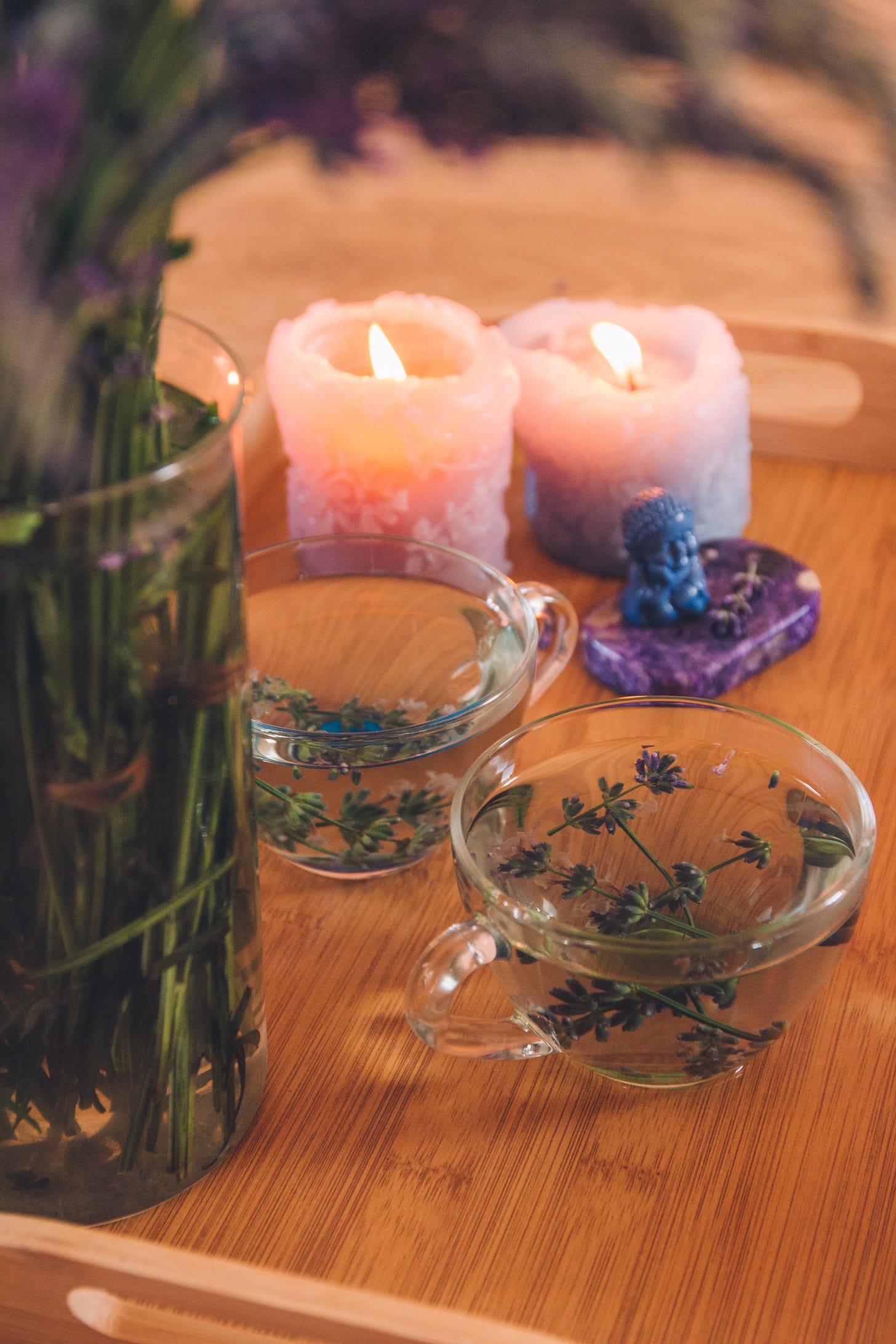I have been thinking a lot about rest and how it has only come into my life as a practice and a way of being quite recently. In our hyper-productive, capitalist, consumerist culture, rest can be suspect. It can be labeled as lazy, selfish, indulgent, wasteful, an avoidance of responsibility. I know that well because all my life I have refused myself the gift of rest. I have judged and resented others who took the time to rest. If you needed a daytime nap, you were weak, selfish or lazy, in my mind. I prided myself on never taking a nap unless I was too ill to function. Like so many, I bought into the hustle and grind culture. I had to do more, be more, achieve more. Rest? Eight hours of unbroken sleep? Who has time for that?
Now I am slowing down. And yet the more measured, thoughtful pace of life I am inhabiting that allows for rest is occurring at the same time the world is in a particularly chaotic, violent, frightening whirlwind of a mess. War, death, misery, suffering—it is all around us and so many of us want to do something, anything, to help alleviate the pain of the world. From that perspective, I think, how dare I rest? Isn’t that the height of selfishness in a turbulent time?
But as I have thought more about rest, I have come to the conclusion that rest is a radical act. Without being properly rested, in heart, mind, body and spirit, we cannot serve ourselves fully, let alone others. We cannot join the struggle for justice if we are weary to the bone. In this way, rest offers resilience. It is an act of rebellion and resistance against the worship of productivity.
It is only now, as I experience unprecedented transitions—navigating a new chapter of life after the end of a long marriage amid the responsibilities of caregiving —that rest is no longer an option but a necessity. Rested, I am renewed and can return to my life and my loved ones with greater clarity and presence.
Today I bring you the beautiful voices of authors, poets, singers, meditation teachers and artists that have shown me the way toward deeper rest, and how to nurture Clarity, Connection, Community and Creativity in my life, and hopefully yours, too.
Clarity
Exhaustion muddles the mind. On the days that I run from one activity or task to another (because I am still learning to allow myself rest and to be imperfect at it), and my mind is a buzzing to-do list and my inner critic is pointing a finger at the things I have not done yet, I cannot think straight. Tired and distracted, I can’t create and I can’t be fully present in conversation with a friend or family member. Lack of rest distances me from myself and others.
Rest delivers clarity, and rituals feed rest. My morning and evening rituals over the past year have allowed me to come into rest and the best sleep of my life (although that began with giving up alcohol in 2021). I have set hours for bedtime and wake-up, which, as an early bird, are 4:30 or 5am for wakeup and 9:30 or 10pm for lights out. In the evening, I wind down by diffusing lavender in my bedroom an hour before bed, lighting a candle, playing the same classical sleep music on my Insight Timer app and crawling under my duvet with a book. I have been on a TV diet for about five months now because the many unread books on my shelves were clamoring for attention. Reading at night has helped put me in a restful state.
In the mornings, I light a candle, play ambient morning music, linger in bed in the pre-dawn darkness with a tray with tea or lemon water, and journal for half an hour, followed by a short meditation and stretches on my yoga mat. These acts of ritual and rest are now non-negotiable parts of my life.

Routine is not the same as ritual, as writer
explores in her Substack this week, in Writing is not about the routine. She finds clarity for her work not because of structure but because “I do have a very good handle on how I feel most days and I am open to receiving…I listen to my inspiration. I tune in, I feel connected to something…I go where my curiosity is the strongest and I am pulled by a magnet towards it.” Emma offers a very useful list of questions to ask oneself, like What gentle activities help you get into your flow? And What time of day do you feel most alive? These are probing questions that will serve any of us seeking to connect with the deeper part of ourselves and coming to that place of rest and clarity.Emma shared a beautiful Letter from Love on
Letters from Love Substack this week; be sure to listen to her read it. Rest was on Liz’ mind, too, this week as she told her community:I believe that Love’s role is to bring us comfort during the terrible storms of life. The more comforted I can be by Love, the more Love I am capable of bringing into this exhausted world. And that, too, is no small thing. My prompt for this week is to get some rest, dear ones. I’ve been reading that instruction again and again in your letters, and it seems now almost like Love’s commandment: Rest, rest, rest.
Connection
As I have embraced rest, I have connected more deeply with myself and with others. I can get more easily to the heart of things, on the pages of my journal and in conversation. Here are some ways I find connection through rest and some areas where I still encounter resistance.
Music is one of the ways in which I come to stillness and rest. This week Allison Russell’s new album The Returner is in my head and my current beach-walking companion. Listening to the album from first song to last, it tells a beautiful story of redemption as Russell emerges from a traumatic past to embrace a joyful present. (Be sure to listen to her talk about it on Glennon Doyle’s podcast We Can Do Hard Things this week.) Listening to an album in its entirety, or to spend time being immersed in a piece of music that speaks to you, is a great gift of rest to give ourselves. Share the music you find most restful in the comments. I am building my playlist.
I especially love the first song on the album, “Springtime,” which speaks to my current awakened state:
So long, farewell, adieu, adieu
To that tunnel I went through
And my reward, my recompense?
Springtime of my present tense
As I mentioned, meditation is a gateway to rest for me. I am drawn to guided meditations and most often turn to the great meditation teacher
with her gorgeously calm voice, and this track in particular: Sleep. Rest. Reset. It is often what I listen to at night after I turn off my light. She talks softly into my ear: “It’s time to rest now. The day has unfolded into a quiet, empty night and we lay our bodies in blankets of warmth and comfort to encourage a folding inward.”Yet where I find resistance in accessing the deepest rest is a reluctance to shed tears. I do not cry easily. When they do start to come, often in conversational spaces where I feel safe and can therefore be vulnerable, I often stop them quickly but even in those few seconds I feel a release.
So I was encouraged to read
this week on and her thoughtful essay, “The Healing Power of Tears.” So many of us feel like crying these days, given the state of the world and its suffering, on top of personal suffering so many of us experience. Louisa has helped me recognize that tears are not weakness but rather strength and a way to become more deeply connected to ourselves. She explains what it felt like to have a “complete” cry, to really let go of all that emotion:Unlike what I had imagined — that if I started crying, I would never be able to stop — my tears ran out before the half hour was up. I felt a sense of lightness in my body, and my head felt incredibly clear, as if the windshield was wiped clean.
On those occasions I have allowed myself a good cry (and it is an act of goodness toward ourselves), I feel emptied out, exhausted but also renewed and refreshed. We come to rest after a good cry. We’ve released the swirling torrent of emotion inside us. All that is left is a gentle stream, washing us clean.
Community
Can rest be a collective act, a movement? Trisha Hersey, the creator of the Nap Ministry and author of Rest is Resistance: A Manifesto, believes that to be true. As she explains:
I began experimenting with rest as a tool for my own liberation and healing in 2013. It has always been about more than taking a full nap. My rest as a Black woman in America suffering from generational exhaustion and racial trauma always was a political refusal and social justice uprising within my body. I took to rest and naps and slowing down as a way to save my life, resist the systems telling me to do more and most importantly as a remembrance to my Ancestors who had their DreamSpace stolen from them. This is about more than naps. It is not about fluffy pillows, expensive sheets, silk sleep masks or any other external, frivolous, consumerist gimmick. It is about a deep unraveling from white supremacy and capitalism. These two systems are violent and evil. History tells us this and our present living shows this. Rest pushes back and disrupts a system that views human bodies as a tool for production and labor. It is a counter narrative. We know that we are not machines. We are divine.
Today Hersey calls herself “the nap bishop” and holds “nap sessions” around the country, as an antidote to burnout and a resistance to the systems that suppress rest. But if you can’t make it to one of the events, you can lay yourself down and listen to her dreamy, powerful playlist and embrace your human right to rest.
Creativity
In September, I gave myself the gift of the poet
’s Three Sunday Series, a regular series of three one-hour long video presentations by Whyte in which he addresses a particular theme with an opportunity to comment and ask questions in the chat. The September theme was “A Deeper Form of Rest: The Art and Practice of Creating a More Beautiful Mind.”As I listened to him reflect on the theme, read aloud some of his poems as well as the poems of others, I took notes and recognized so much of what I have recently been experiencing in these life transitions: by embracing a deeper form of rest, I have been able to cultivate “a more beautiful mind;” more open to my imagination and to my creativity. Rest has led to a flow of creative expression. And so I will continue to cherish and protect it in my life.
Not incidentally, it seems, Whyte uses the word “radical” when he speaks of why we need to turn to a deeper form of rest.
The thresholds of difficulty we come across in our lives almost always ask us for a radical form of simplification, toward something elemental, precious and deeply personal that lies at the core of all the pressure and complication that can overwhelm us. We can each practice shaping a more beautiful mind, both for ourselves and for others. We can be a presence that invites other presences in the same way we might walk entranced into a room where someone is playing live, intriguing and extraordinary music.
Question to ponder and share in the comments: Are you feeling the need for more rest in your life and how are you answering that call?







Question for readers: Are you feeling the need for more rest in your life and how are you answering that call?
That makes me think I need to overhaul my going to bed routine. Who doesn't need more sleep? I'm going to try some of the things you do.